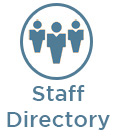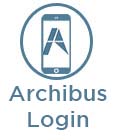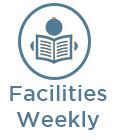
Overall Organizational Concepts
The Facilities Services Department has initiated numerous organizational changes over the past five years.
Overall reorganizational concepts include supporting the University of Tennessee Academic/Research Vision and Mission, supporting the Chancellor’s goal to become a Top 25 Research Institution, converting maintenance crews from reactive groups to dynamic proactive teams, and focusing on the department’s core tasks: Maintenance and Project Management.
Much of this has been accomplished through the reconfiguration of Design and Construction, and through the re-envisioned and service-expanded Administrative Support, Training, IT Support, Utilities, Zone Maintenance and Communications areas, all of which ensure that Facilities Services is able to meet the needs of the campus community like never before.
Facilities Services Reorganization Highlights
• Creation of a Communications & Public Relations team to highlight services available to the campus community:
° Facilities Fundamentals Workshop – programs for campus, along with a DIY Video series to promote education and continued learning, in turn strengthening the core missing of the university.
• Creation of an Employee Training & Development team to focus departmental skill improvement in employees at all levels:
° Specialized Facilities Training Programs:
▫ Career Ladders/Paths
▫ Skillsoft (required, PPE & OSHA training)
▫ ESL (English as a Second Language)
• Zone Maintenance has completely shifted its emphasis from a reactive group to proactive group, with the implementation of inspection teams and the STAR Team.
• Building Services has re-envisioned customer service by reversing its outsourcing of custodial work, and taking back 5 million square feet of cleaning in-house, phasing out its contractor, and adding 140 new positions.
• Increased efficiency with the replacement of its legacy CMMS with a globally recognized enterprise IWMS (Archibus) system, adding mobile devices into the hands of field workers for faster response and turn-around times.
• Integrated the Design and Construction teams:
° More intensive campus planning
▫ Campus Design/Color Initiative
Facilities Operations Reorganization
Building Services: Facilities Services began the transition to in-house custodial services in its Building Services office in April 2012, with an acquisition of 250,000 square feet in the Conference Center, where the Total Cleaning program was tested as a part of the Facilities Services reorganization. Total Cleaning has resulted in the complete transfer of university custodial services, including the Agricultural Campus, as of June 1, 2014.
Rapid Response Team (RRT): During reorganization, an important goal was transitioning from a reactive group to proactive team. The Rapid Response Team (RRT) has been developed as a specialized unit that handles overall facilities inspection, quality control, special projects and customer service initiatives. RRT receives work requests from all areas of the UT campus, and has a wide variety of skills in the areas of electrical, plumbing, carpentry and heavy equipment.
Landscape Services: As an early part of the Facilities Services reorganization, Landscape Services brought mowing and leaf removal services in-house in 2009, allowing the university to maintain campus grounds at a savings over previously contracted work every year since, with an average savings of approximately $325,000. No personnel were terminated in this transition, and new personnel have been hired and trained through the savings generated.
Zone Maintenance Reorganization
A key component of the Facilities Services reorganization, the modified “Zone Concept” divides the campus into 15 customer-oriented zones, each overseen by a respective Zone Maintenance unit, which allows for a proactive approach to customer service and repair. Zone Maintenance has personnel assigned to almost every building on the campus, and provides general maintenance services within educational and general purpose buildings on both the Main and Agricultural campuses. These services encompass almost all general, day-to-day maintenance and repair needs.
In keeping with the University of Tennessee’s goal of becoming a Top 25 Research Institution, Facilities Services also created the STAR Team (Special Team to Assist Research) as an office of Zone Maintenance. The STAR Team assists new researchers in getting their research programs running in a timely fashion once they arrive on campus. The team also works with existing researchers during changes in programming requirements and with day-to-day maintenance issues that may arise.
Communication & Info Services Reorganization
Amidst the department’s other numerous changes, the Communication’s & Information Services unit has also grown and experienced many improvements and accomplishments since the reorganization.
Communications & Public Relations: One of the purposeful changes in this unit includes the introduction of the Communications & Public Relations office, which assists with all departmental communication, inter-departmental communication, and general public relations work for the department. This office also maintains all of the department’s Web site and social media content.
IT Support & Maintenance: Although staffed by only two full-time employees, the IT Support & Maintenance office continues to play a vital role in the evolution of Facilities Services as a whole. Like most other offices within the department, IT Support & Maintenance has also undergone a great deal of change during the reorganization, while still managing to tackle the needs of a large and dynamic department. In 2013 an IT Technologist II position was added to the unit to help curb the growing demand for IT support and help introduce newer technologies to the workforce. In particular, IT Support & Maintenance is overseeing the integration of an Integrated Workplace Management System (IWMS) to replace the current legacy work order management system, and to improve self-assessment and benchmarking capabilities of the department.
Employee Training & Development: At the outset of the Facilities Services Department reorganization efforts in 2012, the need for an expanded training team quickly became evident. By re-allocating a portion of its annual budget and pursuing a goal of funding training activities to 5% of the department’s overall budget, the Facilities Services Department created an Employee Training and Development office in March 2013.
Training staff can now boast significant milestones in the department’s employee development; including significant increases in the number of training hours employees have participated in so far, career “ladder/path” programs to foster advancement, ERC training for supervisors, and cross-training/skill-sharing programs, which have facilitated the reassignment of personnel during Facilities Services reorganization efforts, reducing the number of employees hired to fill new positions, and increasing overall competency.
Utilities Services Reorganization
Another key component of the Facilities Services reorganization involved consolidating Plumbing & Heating Services, Electrical Services, A/C Services and the Steam Plant into one managed unit under the Director of Utilities Services. The pooling of these fundamental services improves coordination, while ensuring adequate oversight.
Design Reorganization
Design Services:Throughout the reorganization, Facilities Services changed its approach to Design Services, creating a unique aesthetic that speaks to the heritage and identity of the University of Tennessee, while also reassigning personnel and responsibilities to more efficiently and effectively serve our campus community.
By taking this new approach to unit alignment, Landscape Design, Project Management, Codes Enforcement, and Space & Archives Inventory, Design Services has vastly improved these vital service areas. This accomplished the creation and upkeep of a digital drawing and specification archive from legacy (paper) records; new positions added for full-time Interior Design, Landscape Design, Electrical Engineering and Civil Engineering project managers and coordinators; the implementation of codes enforcement Redi-check procedures for drawings submitted by designers; increased communication with Fire Marshals at the local and state levels, and the transference of estimating responsibilities to Construction, streamlining the design process, while improving overall unit communication.
Landscape Design: Some new policies and procedures ushered in by the new vision and core principles for campus Landscaping and Design include improved project programming that involves Facilities Services, university administration, and design consultants collaborating to establish project scope and budget. The newly formed Campus Planning and Design Committee (CP+DC) now oversees all campus projects in an effort to bring unity to campus design and aesthetic standards.
Other duties overseen by Landscape Design include developing and maintaining the Campus Landscape Vision and Site Standards document, preparing site construction documents and specifications, playing a vital role in site design review and construction administration for projects executed by the Facilities Planning Department, and administering the EPA National Pollution Discharge Elimination System (NPDES) Phase II Municipal Separate Storm Sewer System (MS4) Permit.
Construction Reorganization
The creation of the Construction Services unit during the Facilities Services reorganization has decreased time taken to complete projects, and improved construction efficiency. Construction Services assists the campus with construction and renovation activities, and is available to assist with projects performed by the Office of Facilities Planning to help control costs, achieve quality, and monitor the interests of the campus community.
Construction Services also develops specifications for material and contracts, and now assists with estimating and design on projects, consulting with architects, engineers, and clients concerning the ongoing development of campus projects. Other reorganization improvements include the formation of a small cross-disciplinary construction team, which now provides quick and effective in-house construction solutions, increased responsiveness, improved communication, and the elimination of unnecessary expenditure.






